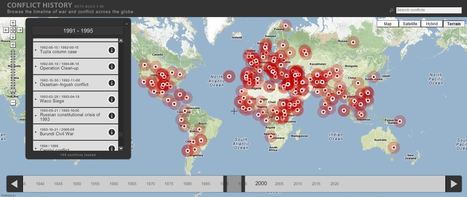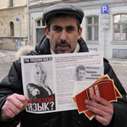This is a video introduction to www.historypin.com which might just prove to be a very useful and important project. It's historical geography powered by collaborative mapping that is infused with social media dynamics. Backed by Google, they are geo-tagging old photos to recreate the historical geographies of all places and comparing them with current street view images. You can search by topic, place or date...this has the potential to be very big.
Get Started for FREE
Sign up with Facebook Sign up with X
I don't have a Facebook or a X account
 Your new post is loading... Your new post is loading...

olsen jay nelson's comment,
August 16, 2012 7:46 AM
This is just what I've been looking for, believe it or not:-)

Paul Rymsza's comment,
August 22, 2012 2:15 PM
the potential of this site is amazing between the interactive learning system and the correlation between the timeline and location. If the human geography class is anything like this i can't wait for it!

Rebecca Farrea's curator insight,
November 8, 2013 9:16 AM
Neil MacGregor, the Director of the British Museum, explains Middle Eastern history using the Cyrus Cylinder. His first point in this TED talk is especially interesting because he explains that people age and perish and objects do the same, but objects such as this cylinder survive and are able to tell important stories of history for a much longer time than people normally can. |
benjamin costello's curator insight,
May 20, 2015 5:38 PM
Interesting concept but not totally fleshed out for use by historians... genealogists perhaps would have a better or easier time using this program. It is very interesting but it only allows for one movement, so rather than showing the history of a nation you can show the history of a family through its interactive timelines. Google maps is not always accurate as well.

Jason Schneider's curator insight,
March 5, 2015 4:54 PM
About 35 percent of Latvia's population (5,000,000) contains Russian ancestors. Russia does not want to give Latvia credit for practicing Russian languages and the Russian heritage because Russian feels like since they take up about 11% of the world, they don't need to share their heritage with any other country. It's kind of like copyright laws that Russia seems to have. 
Martin Kemp's curator insight,
December 17, 2015 1:37 PM
this article is great. the latvians are doing the right thing. in the place you live and where you are from, the people should speak your language and follow your rules. you should be worried about what the native people want and not what others want. be proud of your culture and preserve it. |














